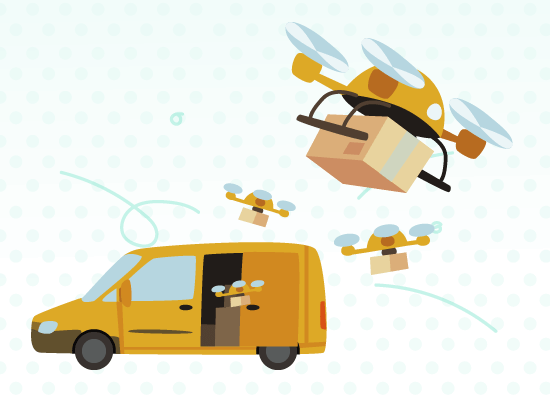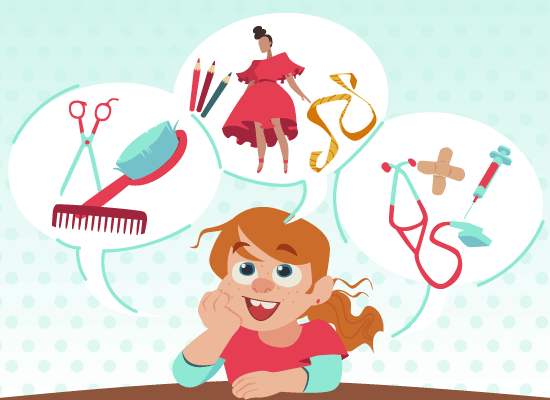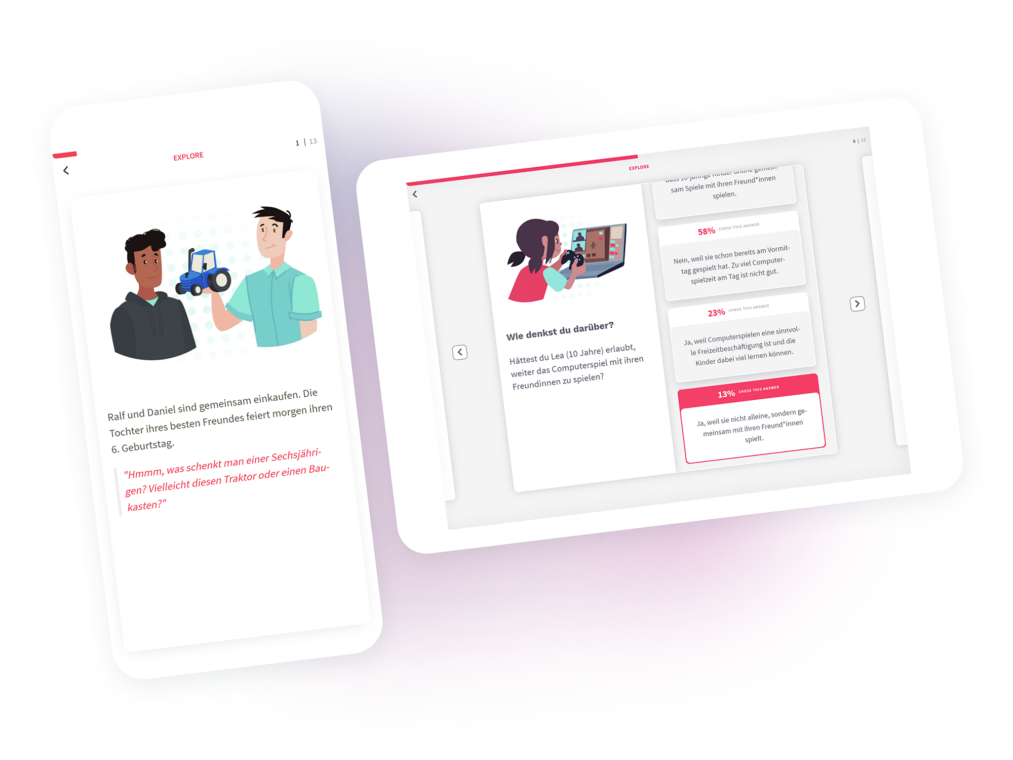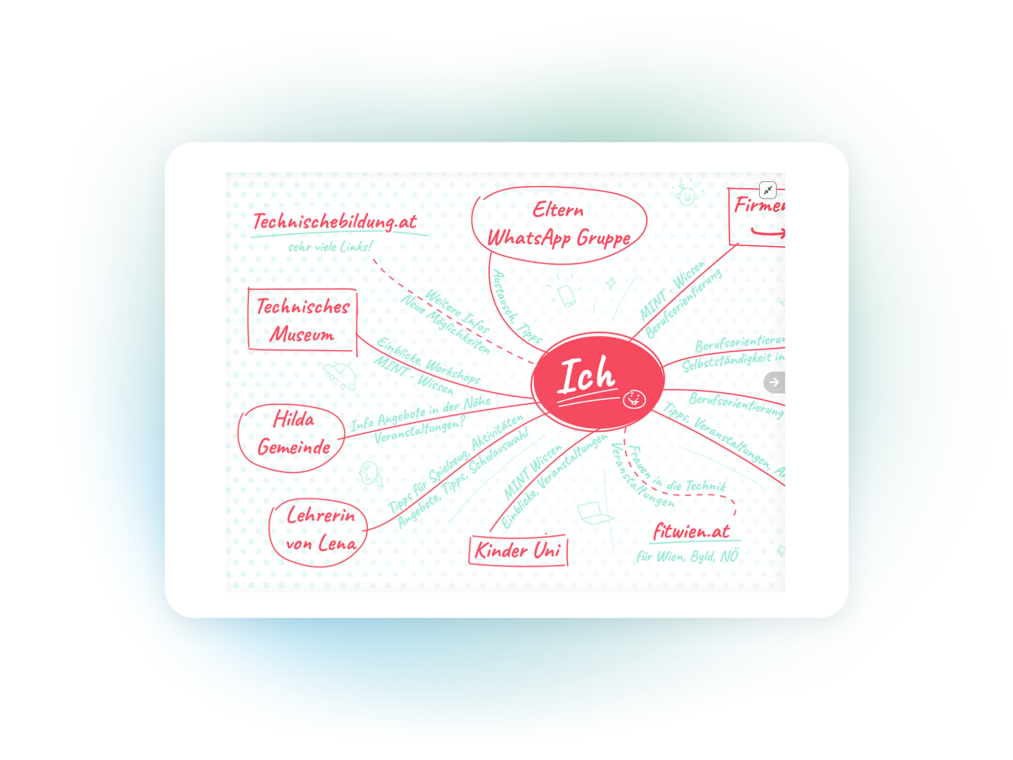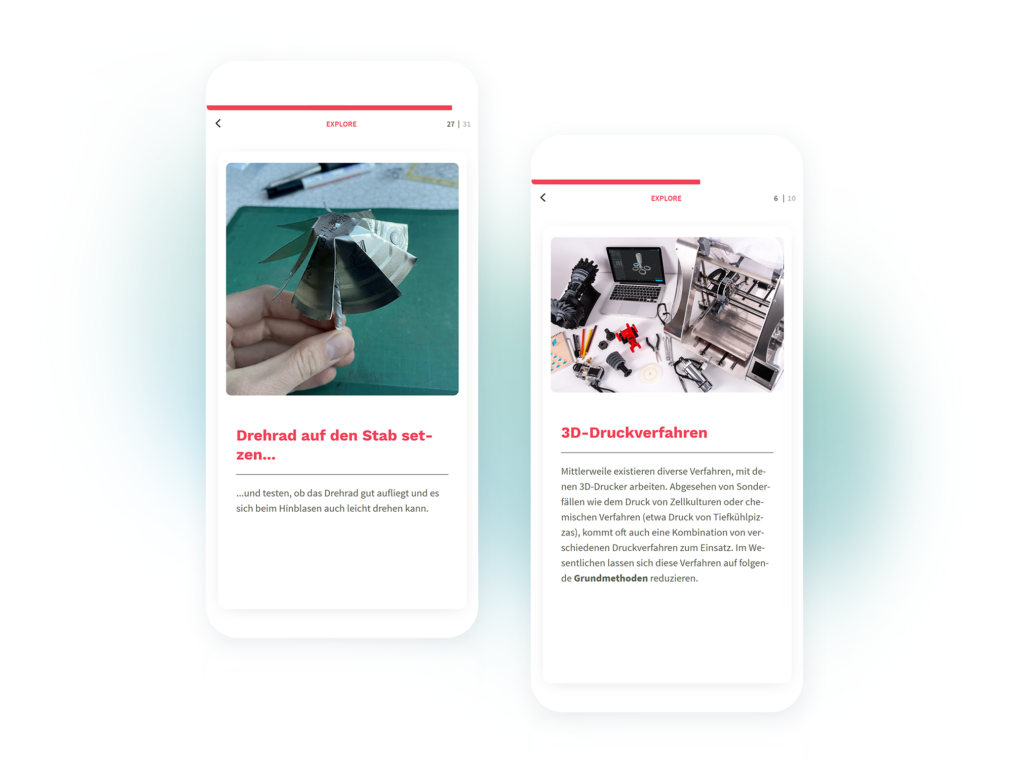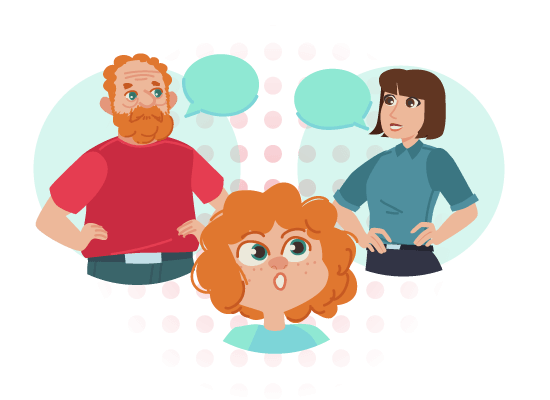
Promoting STEM professions
Artificial intelligence has found its way into our everyday lives and technological innovations are developing at a previously unimaginable speed. The buzzword STEM (or MINT in German which stands for mathematics, computer science, natural sciences and technology) has been used a lot in connection with this.
Although professions in the MINT core areas of computer science and natural sciences in particular promise a high degree of future security, not enough young people choose a career in this field.
Breaking gender stereotypes
This is particularly true for girls and young women. The causes have been well researched in the meantime. Gender stereotypes still prevail in our society, and so, in addition to the education sector, parents or legal guardians play the most important role in getting their children interested in STEM professions.
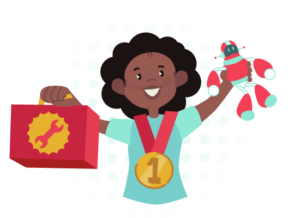
E-MINT is the first project in Austria to address this topic. It focused on getting adults, who themselves have little or no connection to STEM fields, excited about the topic. The goal is to help parents build the skills they need to act as positive role models for their children.
The project course
The project started in September 2019; the pilot phase with the completed app took place from February to the end of August 2021. In addition to ovos media GmbH, the E-Mint team consisted of four other partners: Center for Applied Game Studies (Danube University Krems), MOVES – Center for Gender and Diversity, Otelo eGen – Offenes Technologielabor, and the Austrian Computer Society (OCG).
What’s in the app for parents?
The E-MINT app can still be used, with the exception of the Virtual Makerspace Workshops. The four parts of the app are built upon the concept of “Science Capital” which is like a backpack that everyone carries around with them. It consists of knowledge (What do I know?), attitudes (How do I think about it?), actions (What do I do?) and acquaintances (Who do I know?) in connection with the STEM field.
The concept, founded by Pierre Bourdieu, can explain why some people “get along” in different STEM fields and feel comfortable in STEM activities and some do not. King’s College London has examined Science Capital in more detail in a major study.
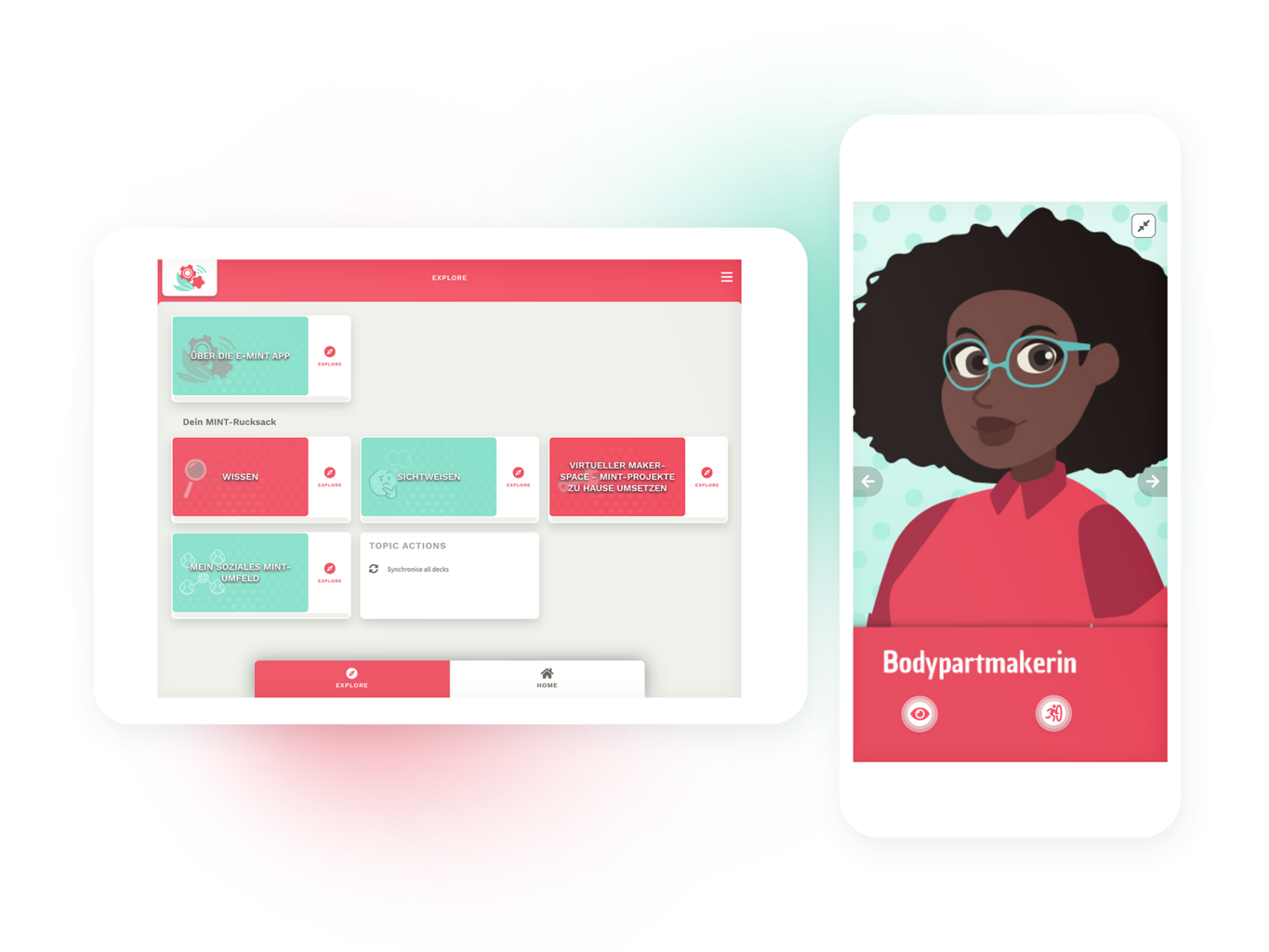
“What do I know?”
In this chapter, parents learn about career choices, gender stereotypes, future technologies, and STEM careers. Of course, not all parents need to be STEM experts to support their children in this area. However, some basic knowledge can help parents have conversations with their child about STEM topics, encourage interests, and spark digital curiosity.
“What can I do?”
The users of the app were able to participate in so-called virtual makerspaces. With their own actions in the STEM field, they could build up valuable empirical knowledge that can enable them to become STEM role models for their children. At the same time, the makerspaces offered an opportunity for families to try out technologies, experiments and methods related to technology and science.
“How do I think about it?”
In this chapter, parents can discuss their attitudes about their children’s career choices. With the help of short comics, users of the app learn that gender often has a significant influence on the choice of toys, clothing, or activities they do together. Surveys are included in each story for parents to reflect on.
“Whom do I know?”
In the chapter “My Network”, participants examine their own personal network which supports them or can support them in promoting their child’s digital curiosity. Parents are also provided with instructions for a personal STEM network analysis.


